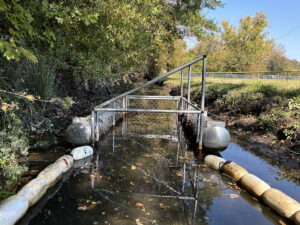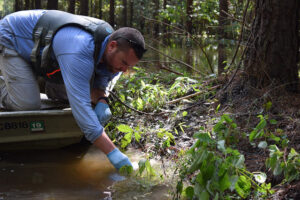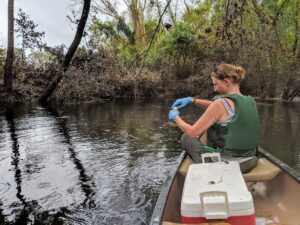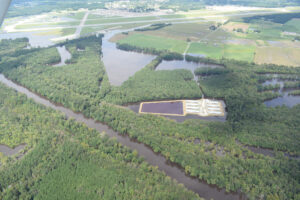News
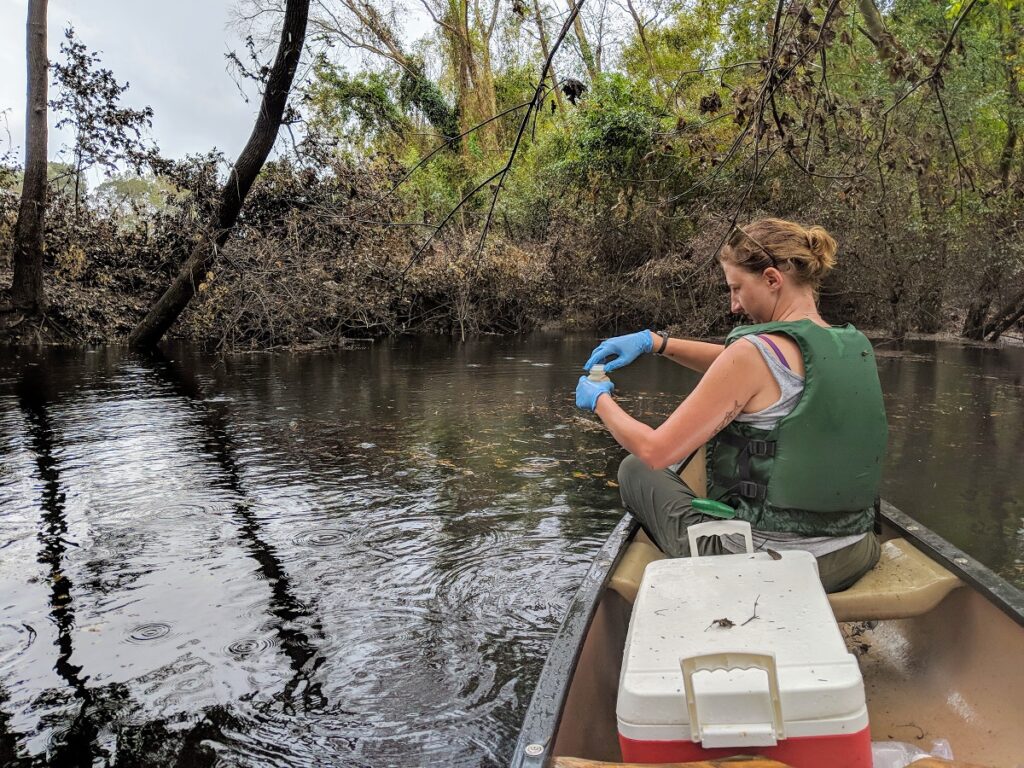
Lower Neuse Riverkeeper Katy Langley sampling the Neuse
Since Hurricane Florence left our region, your Riverkeepers have been working daily to document environmental threats caused by the storm. We are still assessing issues posed by flooded hog lagoons, coal ash spills, and sewage spills into your waterways. Testing is ongoing, and as soon as we can compile and analyze our data we will get the results to you – keeping the public informed about the health of your waterways is a major concern for us.
What we do know so far is that industrial animal facilities located across the region did in fact flood, and dozens of hog lagoons were inundated with floodwaters. We know that some of these were located in the Neuse River floodplain and have impacted the Neuse basin.
Last week, your Upper Neuse Riverkeeper Matthew Starr documented an active coal ash spill at Duke Energy’s HF Lee plant in Goldsboro. “The spill at H.F. Lee was completely predictable and entirely preventable,” Starr said in a Waterkeeper Alliance article. “Duke continues to mislead the public about the threat posed by their coal ash storage, but two years after its coal ash spill during Hurricane Matthew, it is infuriating that we still are talking about those same ponds at Lee being under water again—without one shovelful of coal ash being moved.”
We also know that wastewater treatment plants around the region spilled sewage into waterways as a result of hurricane-related damage, though DEQ has not yet said how many facilities were affected. Your Riverkeepers recently completed a map of sewage spills across the state; sewage spills are a major threat to our waterways, and we will continue to ensure the public is aware of this issue going forward.
Though we have yet to get a full picture of the damage to your waterways, we know the water is still dangerous. There have been reports of serious illnesses resulting from contact with floodwaters, and we want you to stay safe, which means staying out of your waterways for the time being. If you use well-water, please have your water tested before you use it – you can see some resources for Beaufort County here and Craven County here (scroll to the bottom of the article, or call 252-636-4936.)
Related News
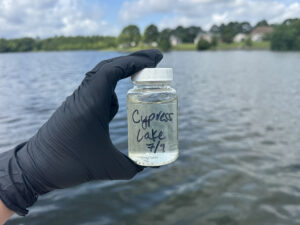
Specialist investigates lake connection to mysterious skin rash
July 10th 2025
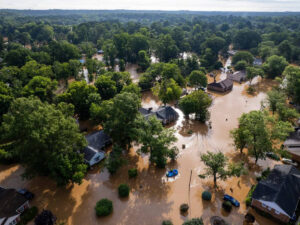
Riverkeeper: Central NC flooding part of a much larger issue
July 10th 2025

N.C. Governor vetoes bad rulemaking bill
July 10th 2025

Riverkeeper, program director ‘Growing More than Rain Gardens’
July 10th 2025

Volunteer coordinator goes ‘fishing’
July 10th 2025
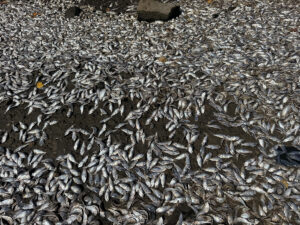
Neuse fish kill expected to extend beyond holiday weekend
July 3rd 2025
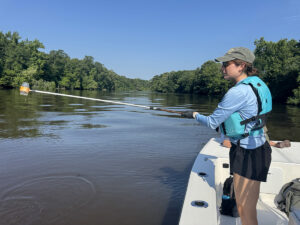
Swim Guide fails prompt Maple Cypress investigation
July 3rd 2025

Riverkeeper, town partners root out source of Smithfield sediment pollution
July 3rd 2025
